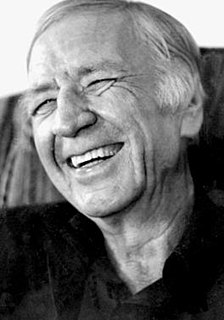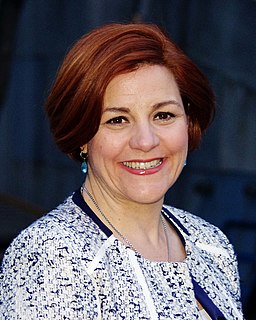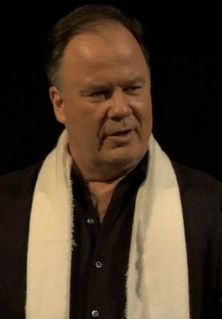A Quote by Jim Thompson
Dad always said that he had enough trouble sorting the fiction out of so-called facts, without reading fiction. He always said that science was already too muddled without trying to make it jibe with religion. He said those things, but he also said that science itself could be a religion, that a broad mind was always in danger of becoming narrow.
Related Quotes
Science fiction is a weird category, because it's the only area of fiction I can think of where the story is not of primary importance. Science fiction tends to be more about the science, or the invention of the fantasy world, or the political allegory. When I left science fiction, I said "They're more interested in planets, and I'm interested in people."
This [the opening of the Vatican City radio station built by Marconi earlier in 1931] was a new demonstration of the harmony between science and religion that each fresh conquest of science ever more luminously confirms, so that one may say that those who speak of the incompatibility of science and religion either make science say that which it never said or make religion say that which it never taught.
But science can only be created by those who are thoroughly imbued with the aspiration toward truth and understanding. This source of feeling, however, springs from the sphere of religion. To this there also belongs the faith in the possibility that the regulations valid for the world of existence are rational, that is, comprehensible to reason. I cannot conceive of a genuine scientist without that profound faith. The situation may be expressed by an image: science without religion is lame, religion without science is blind.
I think the least important thing about science fiction for me is its predictive capacity. Its record for being accurately predictive is really, really poor! If you look at the whole history of science fiction, what people have said is going to happen, what writers have said is going to happen, and what actually happened - it's terrible.
Science fiction is fantasy about issues of science. Science fiction is a subset of fantasy. Fantasy predated it by several millennia. The '30s to the '50s were the golden age of science fiction - this was because, to a large degree, it was at this point that technology and science had exposed its potential without revealing the limitations.
I lost my dad back in the fall, and my dad said something to me a long time ago. He said, 'Are you happy with who you are now?' because we just had a real serious talk. And I said, 'Yeah.' He said, 'Then you can't regret what got you to where you are. So whatever you do and whatever mistakes you make, learn from them and grow. And just always treat people with kindness,' which I've tried to do.
I guess...on one hand, I spent way too much time watching science fiction and reading science fiction when I was growing up. But a part of it is I also never felt much of a connection to the world in which I lived while I was growing up, and so, oddly enough, I think I felt a lot more connected to the worlds that I read about in science fiction.
I had a teacher once who said, "If you are going to write fiction, you should only read poetry." I have always been interested in the writers who care about their sentences and who really work on that level. I have always said that I hate writing, I love revision. So, the language is really important to me. And the comedy and the horror that come out of the language.


































